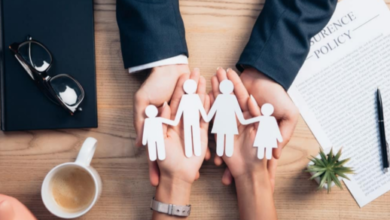Why Effective Police Training is Essential for Public Safety

Every community deserves to feel safe. Public safety is not just about reacting to crimes—it’s about preventing them. One of the most critical ways to ensure safety is through well-structured and ongoing police training.
Training equips officers with more than just technical skills. It shapes how they think, respond, and connect with the people they serve. It is the invisible layer of protection that strengthens our streets. Without strong training, even the best intentions can go wrong.
Importance of police training in real-life scenarios
Real-life situations demand more than textbook knowledge. Officers face unpredictable conditions daily. From traffic stops to domestic disputes, every encounter carries risk. That’s why proper police training is crucial.
Police training refers to the organized programs designed to prepare officers for service. It includes physical drills, legal instruction, communication strategies, and situational awareness.
An officer trained to stay calm in crisis can prevent chaos. They can defuse situations before they escalate. That skill saves lives—both civilians and officers alike.
Role of continuous learning in modern law enforcement
Training doesn’t stop at graduation. Modern policing requires lifelong learning. Laws evolve. Communities change. Technology grows. So should the skills of law enforcement officers.
Departments that invest in ongoing development see better results. Officers become more confident. Mistakes are reduced. Confidence and clarity lead to better decisions on the ground.
Regular workshops, scenario simulations, and refresher courses should be the norm. Training is not a one-time fix. It’s an ongoing promise to public safety.
Police training and use of force handling
Force must be used only when absolutely necessary. The best officers know how to avoid it, not rely on it. That awareness comes from training.
Through simulations and role-playing, officers learn how to assess threats and respond with the right level of action. This doesn’t mean hesitating—it means knowing the best way forward under pressure.
Police training teaches that every situation is unique. It urges officers to think fast, but act smart. Quick judgment, not reckless moves. That makes all the difference.
Adapting police training to current challenges
Times are changing fast. Threats now include cybercrime, mental health crises, and more. Training must keep pace.
New challenges demand new skills. Officers must learn how to handle digital evidence, respond to social media threats, and interact with individuals in mental distress.
An officer facing a mental health situation needs to be more than strong—they need to be informed. Training makes that possible.
Conclusion
Safety begins with preparation. Police officers are often the first to respond and the last line of defense. Giving them the right tools starts with smart, focused training. Effective police training protects everyone. It gives officers confidence, community comfort, and the entire system a better chance to work as it should.
When police are well-trained, they don’t just enforce the law—they uphold the peace. Let’s not wait for mistakes to remind us of its value. Let’s make training the foundation of every badge and every mission. That’s how we create safer streets, stronger bonds, and a future everyone can trust.




